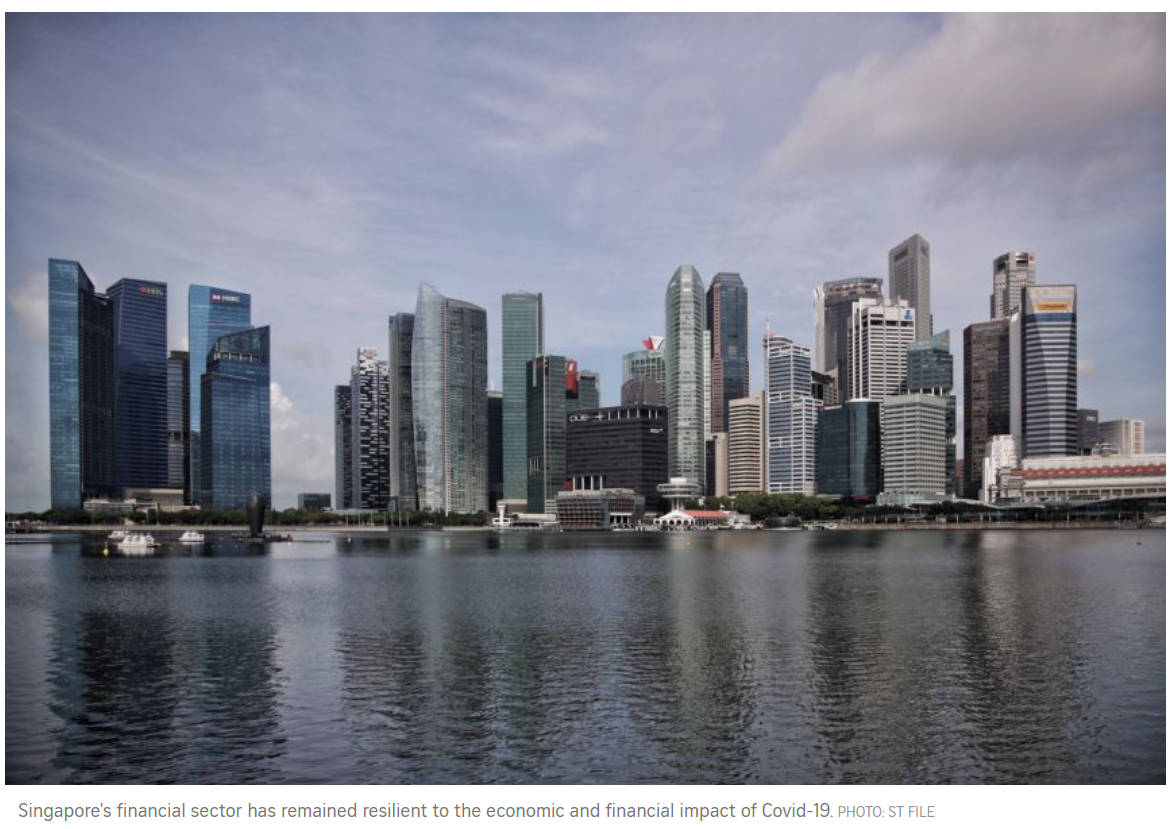Singapore companies, banks now better prepared to face financial risks: MAS
SINGAPORE – Singapore companies and the banking sector are less vulnerable to financial risks and potential shocks now than they were at the beginning of the Covid-19 pandemic.
The vulnerability of Singapore companies came down from an elevated level a year ago as their earnings improved, enabling them to build up cash buffers and better service their debt, the Monetary Authority of Singapore (MAS) said in a report on Monday (Dec 6) .
“Leverage risk has remained broadly stable, as credit extended to the corporate sector as a share of GDP (gross domestic product) moderated in the second quarter of 2021 alongside improved profitability.
“Liquidity and maturity risks have also generally eased over this period, as firms built up cash buffers on the back of the earnings recovery, resulting in improving maturity profiles and debt-servicing ability,” said MAS in its annual Financial Stability Review (FSR).
Singapore companies also continued to avoid excessive reliance on foreign currency borrowings, the report said.
Still, they will likely have to contend with some growth unevenness across the economy, MAS noted.
Sectors less affected by the pandemic, especially manufacturing, will gain further traction, while the more pandemic-sensitive sectors – such as hospitality and tourism – could be subject to sporadic Covid-19 curbs depending on the evolution of the virus.
“Against this backdrop, targeted government support for viable firms temporarily affected by the resurgence in infections may still be needed, even as broad-based assistance programmes are withdrawn to guard against debt sustainability risk in the medium to longer term,” MAS said.
The regulator also said Singapore’s financial sector has remained resilient to the economic and financial impact of Covid-19.
Over the past year, overall lending by banks registered firm growth, underpinned by improving demand for credit both in Singapore and in the region, MAS said.
“The banking sector has maintained healthy asset quality alongside strong capital and liquidity buffers, while continuing to support the economy’s demand for credit,” said the report.
“Similarly, the non-bank sector has weathered the stresses from Covid-19 well; insurers remain well capitalised and investment funds have been able to meet redemptions.”
The FSR report showed that the overall resident credit-to-GDP ratio declined from its peak of 192 per cent in the first quarter of this year to 183 per cent in the third quarter, driven primarily by the GDP expansion.
The report stressed that, even though credit risk has subsided amid improvements in the economic outlook, credit quality could deteriorate if renewed disruptions to economic activity trigger a rise in business insolvencies and unemployment.
The results of the 2021 Industry-Wide Stress Test showed that banks would remain resilient if a resurgence in infections due to more virulent mutated virus strains causes the global recovery to stall.
Banks would be able meet the credit needs of businesses and households in the adverse scenario, even as they continue to adhere to prudent provisioning practices, MAS said.
Source: https://www.straitstimes.com/business/economy/singapore-companies-banks-now-better-prepared-to-face-financial-risks-mas


 Thailand
Thailand




